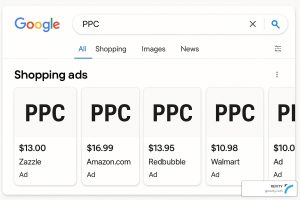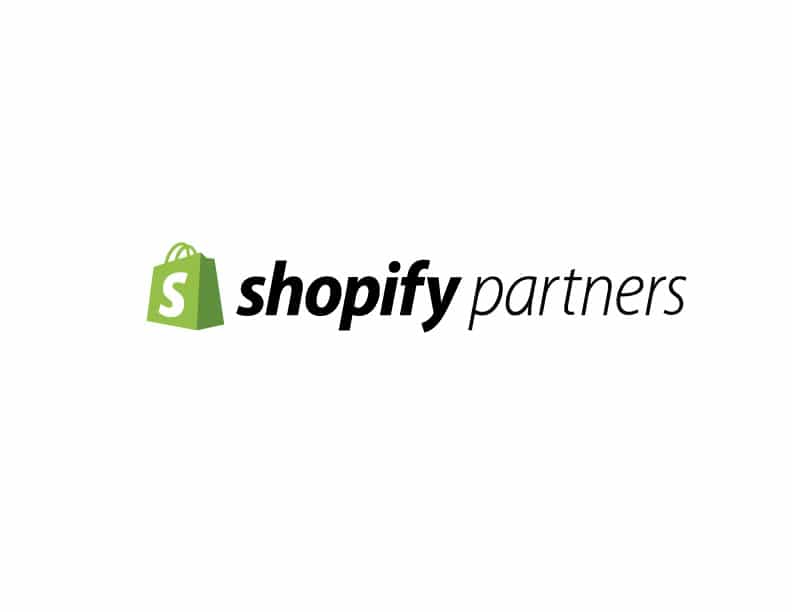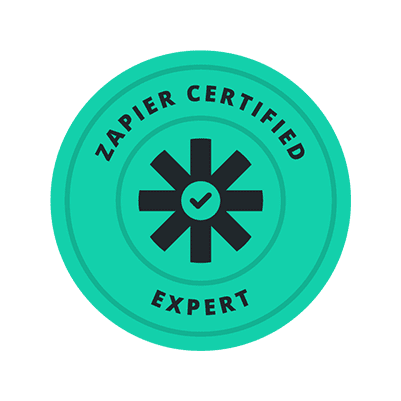In the dynamic world of digital marketing, automation has emerged as a cornerstone for efficient and scalable campaigns. Yet, personalization is the true game-changer in this domain — transforming standard automation into a powerful tool that significantly enhances customer engagement and boosts conversion rates.
In today’s blog, we delve into how integrating personal touches within automated systems streamlines interactions and profoundly resonates with customers.
From understanding the basics of marketing automation to exploring sophisticated strategies for incorporating personalization, this guide illuminates the profound impact that tailored communication can have on your marketing success.
Join us as we uncover strategies to allow your business to deliver messages and meaningful experiences.
Fundamentals of marketing automation
In today’s fast-paced digital world, marketing automation has quickly become a powerful tool for businesses to streamline their marketing efforts and reach their target audience more effectively.
By automating repetitive tasks and creating personalized experiences for customers, marketing automation helps businesses save time, increase efficiency, and ultimately drive higher conversions.
At its core, marketing automation is all about using technology to automate marketing activities and processes. It uses software platforms to manage and automate repetitive tasks such as email marketing, social media scheduling, lead nurturing, and customer segmentation.
By implementing marketing automation, businesses free up valuable time and resources to better invest in other vital areas of their operations.
The role of personalization in marketing automation
Personalization in marketing automation refers to tailoring marketing messages and experiences to individual customers based on their preferences, behaviors, and demographics.
Personalization allows businesses to create customized experiences that truly resonate with their customers instead of sending generic mass emails or displaying generic ads.
Why is personalization so important in marketing automation? Studies have shown personalized marketing campaigns yield significantly higher engagement and conversion rates than generic marketing efforts.
Customers who feel that a brand understands their needs and preferences are more likely to develop trust and loyalty, increasing sales and lifetime value.
Targeted content and segmentation
One key benefit of personalization in marketing automation is the ability to deliver targeted content. By analyzing customer data, marketers are able to segment their audience into different groups based on demographics, behaviors, past purchases, and other relevant factors.
This segmentation allows marketers to create tailored content that speaks directly to each group’s specific needs and interests.
For example, an online clothing retailer sends personalized emails to female customers showcasing new arrivals in women’s apparel while sending a different set of emails featuring men’s fashion to male customers.
This targeted approach greatly increases the chances of capturing customers’ attention and interest, ultimately leading to higher conversion rates.
Tying the two together
In addition to targeted content, personalization also plays a vital role in customer engagement. By understanding each customer’s preferences and behaviors, marketers create personalized experiences beyond simple product recommendations.
For instance, an e-commerce site can use personalization to display product recommendations on its website based on a customer’s browsing history and purchase patterns.
By showing customers items they are likely interested in, the website enhances the overall user experience, making it more enjoyable and convenient for customers to find what they are looking for.
This level of personalization increases engagement and builds loyalty and satisfaction, encouraging customers to return for future purchases.
Personalization in marketing automation also significantly improves customer retention. By utilizing data-driven insights, marketers identify opportunities to upsell or cross-sell to existing customers based on their purchase history.
For instance, a telecommunications company analyzes an individual’s data usage and tailors marketing messages promoting higher data plans to customers who regularly exceed their current plan’s limit.
Businesses increase their average order value and customer lifetime value by strategically offering personalized upsell opportunities. Moreover, by showing customers they are valued and understood, businesses create a strong emotional connection and increase the likelihood of customer retention.
Implementing personalization in marketing automation requires careful planning and execution. Here are a few strategies to consider:
1. Collect and analyze customer data: Gather and analyze customer data to understand their preferences, behaviors, and purchase history. This data will serve as the foundation for personalization efforts.
2. Segment your audience: Use the data collected to segment your audience into different groups based on relevant criteria. This will allow you to create personalized content and experiences that resonate with each group.
3. Utilize automation tools: Invest in marketing automation software that includes personalization features. These tools help automate the delivery of personalized messages and content, saving time and resources.
4. Test and refine: Continuously test and refine your personalization strategies to optimize results. Experiment with different messaging, content, and offers to identify the most effective approach for each customer segment.
5. Monitor and measure: Track the performance of your personalized marketing campaigns through metrics such as engagement rates, conversion rates, and customer feedback. This data will provide valuable insights into the effectiveness of your personalization efforts and help guide future strategies.

Challenges and best practices in personalization
The power of personalization lies in its ability to create unique customer experiences, tailoring messages and offerings to their specific needs and preferences. However, personalization has its challenges. This section will explore these challenges and provide best practices for effectively implementing personalization in your marketing automation funnels.
Data collection and management
One of the biggest challenges in personalization is data collection and management. Gathering accurate and relevant customer data is essential for creating personalized experiences.
However, obtaining this data is daunting. It requires implementing effective data collection methods and systems and ensuring compliance with data privacy regulations. Plus, managing and analyzing the collected data is complex and time-consuming.
To overcome these challenges, investing in robust data collection tools and systems and utilizing data management platforms that can efficiently handle and analyze the obtained data is essential.
Avoid being invasive
Another challenge in personalization is avoiding the “creepy” factor. While personalization aims to provide relevant and tailored experiences, there is a fine line between being helpful and being invasive. Bombarding customers with overly specific or intrusive personalized messages may lead to a negative user experience and erode trust in your brand.
To avoid this, you need to strike a balance between personalization and privacy. Be transparent about the data you collect and how you use it, and allow customers to control the level of personalization they receive. Provide clear opt-out options and respect their privacy preferences.
Too much data
Another aspect to consider is how personalization can be challenging due to the sheer volume of data and the need for real-time decision-making. With the abundance of customer data available, it gets overwhelming to sift through and identify the most relevant information to personalize marketing communications.
Personalization often requires making real-time decisions based on customer behavior and preferences.
Leveraging technology and automation tools to address these challenges is essential. Implementing AI and machine learning algorithms will help analyze large amounts of data quickly and make real-time decisions to personalize customer experiences effectively.
Best practices
In addition to challenges, there are also best practices that can enhance the effectiveness of personalization in marketing automation funnels.
First, defining clear customer segments based on data analysis is paramount. By categorizing customers into specific segments, you’re able to create personalized messages, offers, and content that resonate with each group. You can base this segmentation on demographics, purchase history, browsing behavior, or other relevant factors.
Regular data analysis and refining your customer segments based on new insights are also essential to ensure the continued relevance and accuracy of personalization efforts.
Dynamic content
Another best practice in personalization is using dynamic content. Static content quickly becomes outdated and may not effectively engage customers. Dynamic content, on the other hand, allows for real-time customization of messages and offers based on individual customer behavior and preferences.
By utilizing dynamic content, you can deliver timely and relevant messages that capture your customers’ attention. This includes personalized product recommendations, tailored promotions, or customized landing pages. The key is ensuring the dynamic content aligns with your brand messaging and objectives.
Personalization across multiple channels
Integrating personalization across multiple channels helps deliver consistent and cohesive experiences. Customers interact with brands through various touchpoints, including websites, emails, social media, and mobile apps.
To provide a seamless and personalized experience, it is essential to ensure that personalization efforts are integrated across all these channels. This means utilizing customer data gathered from different touchpoints to consistently personalize messages and offers. Implementing a centralized marketing automation platform helps streamline this process and ensures a unified approach to personalization across channels.
Constant testing and optimizing personalization strategies
Lastly, constantly testing and optimizing personalization strategies is a best practice that should not be overlooked. Personalization is not a “set it and forget it” approach. It requires continuous monitoring, analyzing, and refining to ensure optimal results.
Conduct A/B testing on different personalized messages and offers to identify what works best for each customer segment. Analyze the results and make data-driven decisions to optimize and refine your personalization efforts. This iterative process will help enhance the effectiveness of personalization and ensure that it remains relevant and impactful over time.

Case studies and real-world examples
Case studies and real-world examples are powerful tools that showcase the effectiveness and impact of personalization in marketing automation funnels. They provide concrete evidence of how personalized marketing can directly contribute to business success and engage customers more meaningfully.
One compelling case study comes from a well-known e-commerce company that implemented personalized product recommendations in its email marketing campaigns.
By leveraging customer data, including purchase history and browsing behavior, they created highly targeted recommendations for each customer.
The results were astounding — their click-through rates increased by 300%, and their conversion rates doubled. The personalized approach not only boosted sales but also improved customer satisfaction, as customers felt understood and valued by the brand.
Another real-world example comes from a travel agency that utilized personalized content in its marketing automation funnel. They sent personalized emails to customers who had shown interest in a specific destination or type of vacation. These emails included tailored recommendations, travel tips, and exclusive offers.
The travel agency saw a significant increase in bookings from these personalized emails, as customers appreciated the relevant and helpful information provided. By personalizing their communication, the travel agency was able to build stronger relationships with customers and increase their loyalty.
One particularly fascinating case study involves a large online media company that used personalization to enhance its content delivery. The company analyzed user behavior and preferences to deliver personalized news recommendations to its readers.
By presenting articles relevant to individual interests, they were able to increase click-through rates and time spent on their website by 150%. This strategy improved user engagement and allowed the media company to gather valuable data on user preferences, which informed their editorial decisions and increased overall reader satisfaction.
In the healthcare industry, personalization has also shown impressive results. A hospital implemented a personalized email campaign targeting patients who had recently undergone surgery. The emails included post-operative care instructions, appointment reminders, and helpful resources.
The campaign significantly impacted patient satisfaction, with a 40% decrease in post-surgical complications and a 60% decrease in missed appointments. The personalized communication provided patients with the support they needed during their recovery, resulting in better outcomes and improved patient experience.
These examples highlight the immense power of personalization in marketing automation funnels. By tailoring marketing messages to individual preferences, businesses are able to create genuine connections with their customers and drive better results.
The benefits of personalization are far-reaching, encompassing increased sales, improved customer satisfaction, enhanced user engagement, and more. It is clear that personalization is not only a buzzword but an essential element in modern marketing strategies.
The success of these case studies can be attributed to the use of relevant data and automation technology. Collecting and analyzing customer data allows businesses to understand their customers better and deliver personalized experiences.
Automation technology enables businesses to scale their personalization efforts and deliver tailored messages at scale, making it feasible to implement personalization in marketing automation funnels.
However, it is essential to note that personalization should be done responsibly and with the customer’s privacy in mind. Businesses must be transparent about the data they collect and gain explicit consent from customers before utilizing their information. Respecting customer privacy builds trust and ensures that personalization efforts are well-received.
Personalize your marketing funnel with Revity Marketing
Are you ready to unlock the full potential of personalization in your marketing automation funnels? Turn to Revity Marketing, where we specialize in crafting tailored strategies that transform standard interactions into memorable experiences.
Our expertise in integrating personal touches with automation technology can help elevate customer engagement and amplify conversion rates.
Don’t let your marketing efforts blend into the background — contact Revity today to discover how we can customize your marketing funnels to better connect with your audience and drive results. Let’s make your marketing truly resonate with every customer interaction.
































